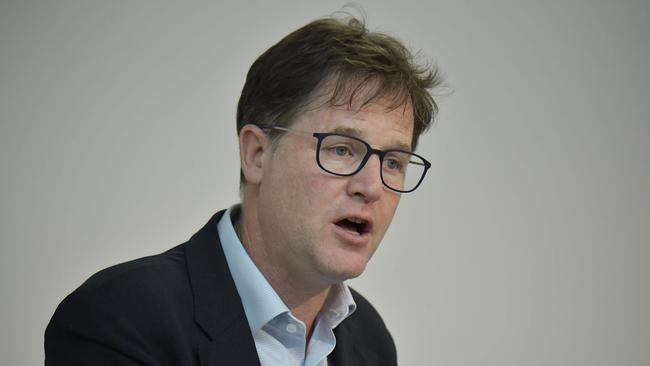Facebook is playing with fire over free speech

The banned president is of course Donald Trump. Yes, I know there’s a new president, too, but for Americans being president can be a bit like herpes, in that you never quite shake it off. Trump was expelled from both Twitter and Facebook back in January, after his fans stormed the US Capitol. Last week, Facebook extended his ban for the next two years. Trump responded with a statement, I think, but nobody saw it or cared.
The banning president, meanwhile, is Muhammadu Buhari of Nigeria. Twitter had deleted a post of his in which he appeared to threaten genocide against secessionists. In response, Buhari blocked Twitter from Nigeria altogether, with his Attorney-General warning of prosecution for anyone who continued to use it. With pleasing circularity, the ban on Twitter was announced in a thread on Twitter, thereby suggesting that the government should be prosecuting itself, at least by the time it got to tweet two.
Buhari is no great friend of the media. As Nigeria’s military dictator in 1984 (by which I mean the year, not the book, but only just) he introduced a law specifically designed to muzzle journalists who embarrassed the government. His second stint in power, which began in 2015, has been even grimmer.
Intriguingly, he was also a known target of the notorious Cambridge Analytica, who were hired by an anonymous Nigerian businessman to campaign online against his election. That episode, murky as it was, was a fine example of the dangers of a Wild West tech world in need of reigning in.
Actually, that happened. Social media companies, stung by whistleblowers, inquiries and assorted other embarrassments, are today far better at detecting and curbing malign politicking on their platforms. Indeed, it is precisely this new spirit of caution that led to companies silencing Trump in January, and rightly, too.
At the centre of this is Britain’s very own Sir Nick Clegg, the man the New York Post recently described as “a British nerd who decides what Americans can read on Facebook”. As Facebook’s vice-president of global affairs, Clegg recently set up the social network’s oversight board, which decided on the Trump ban. And yet – and this is where it all gets a bit confusing – Clegg is also spearheading the call for regulation to take all this stuff out of the tech giants’ own massive hands. “American democracy does not belong to Silicon Valley,” he said in an interview last week, quite grandly. “It belongs to the American people.”
In other words, the British nerd reckons it is simply not right that social media companies should be the final arbiter of what can and cannot be said online. Which sounds like a good point right up until you have to decide who it should be instead. Clegg says governments. But all governments? Including Nigeria’s government? Like they just did?
Clegg’s position is calculated, intricate, emotive, and the purest self-serving nonsense. This is why they pay him the big bucks, I guess. He knows that the thorniest political issues faced by social media companies are all to do with freedom of speech, and he must also know that any American attempt to regulate such things would lead to a head-on collision with the immovable object that is the First Amendment. A country that can’t even manage to ban assault rifles is never going to pass a law against strident tweets. “Control us!” he can plead, knowing they never will.
The other half of Clegg’s stance is that any focus on the huge power of tech firms is missing the point – a remarkably expedient belief for somebody with his job. “I don’t think chopping up a company deals with any of these difficult issues,” he said, in that same interview. Really?
Exactly how one would go about breaking up a company like Facebook, I must admit I have no idea. Understand, though, that it is their power that is the problem. It is not the decisions they make, whether they are about race, or politics, or sex, or the pronouns to be used for trans people. Every publisher in the world makes those decisions every day, and should do, too. Rather, it is the huge impact when these particular publishers make them. It is the fact that, for many users, these few websites represent the internet itself. Regulate that, somehow, and we might get somewhere.
Speech is another matter. Not so long ago, in my industry, we had a good old fight about the risks of state meddling in that sort of thing. Remember? Britain’s Leveson Inquiry was shaming for newspapers, but they – we – still fought off the encroachment of government into who got to say what and how. It seems obvious to me that state regulation of social media is the same fight on a bigger battlefield. Yet traditional media distrusts social media too much to go into battle on its behalf, and Silicon Valley itself is perhaps too comfortable behind the shield of the First Amendment to understand the signals it is sending out to the rest of the world.
Clegg, with his pious calls for an American regulation he must know will never happen, seems to be playing a particularly dangerous game. Every time he declares that companies such as his should not be making the difficult political decisions that their own creations have forced upon the world, then the likes of Buhari listen. Vladimir Putin listens. China listens. Iran listens.
In the wobbly West, I bet plenty of others are listening, too. Who bans whom? Which do you prefer? I know what I think. Choose wisely.
THE TIMES



The symmetry is perfect. On Friday morning, a social media company bans a president. Then, on Friday afternoon, a different president bans a social media company. Which do you prefer? As the ancient knight said to Indiana Jones in that cave that time, “choose wisely”.